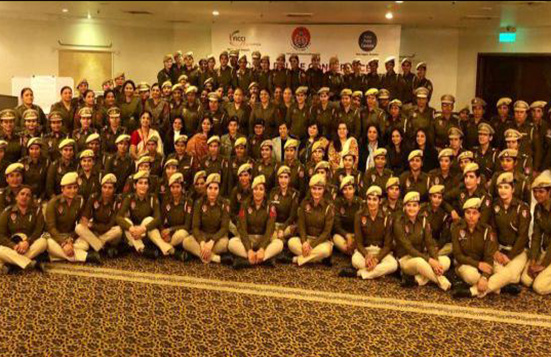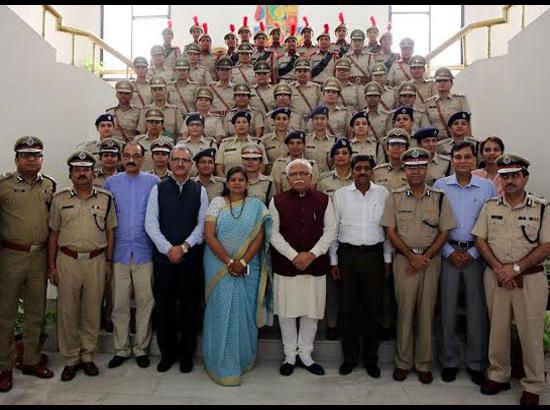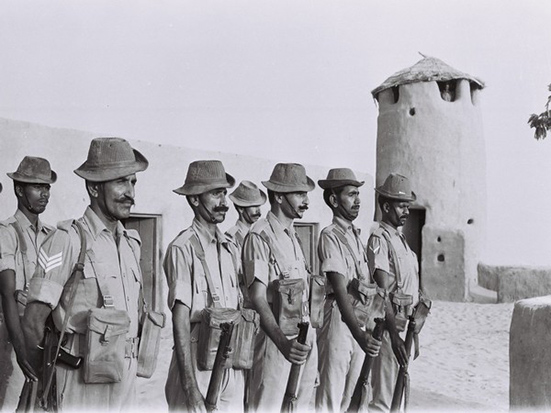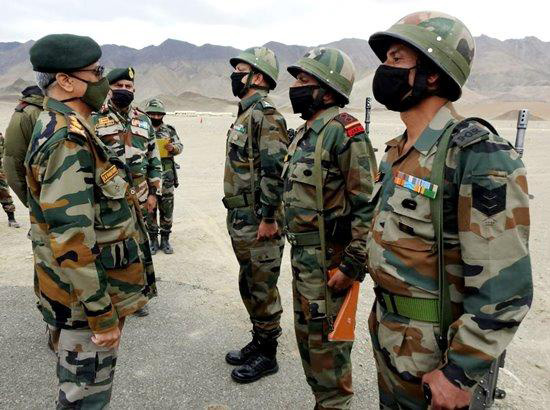STRESS is killing them –Do we care enough for men-in-uniform ?
The attention of the entire world is currently focused upon the deadly corona-virus and the tragic suffering-cum-destruction unleashed by it on the human lives. Out of a total of 93.8 million cases globally, 2.01 million people have sadly succumbed to the dangerous tentacles of the corona-virus till now. The fear factor has risen exponentially and people are seen taking precautions like wearing face-masks, maintaining social distance, shunning their office routines and getting confined-cum-isolated to the four walls of their homes only. This highlights the simple fact that we all want to live and nobody wants to die – this is, of course, a natural tendency of the homo-sapiens as a race and species.
While everyone is today engrossed in talking about the corona-virus in television studios, discussion rooms and online debates, I feel that this should also be a time to highlight another important ‘virus’ which is equally or rather more dangerous than even the COVID-19 virus. Before the readers of this article stress their mind into guessing it, let me highlight that according to the recent observations by the United Nations (UN) agency – International Labour Organisation (ILO), 2.8 million workers die every year due to this ‘virus’ while an additionally 374 million people get injured or fall ill because of it. This ‘virus’ is a grave threat to humanity and it goes by the common name of ‘STRESS’. Most of the people across the globe are actually suffering enormous amounts of active and passive levels of mild to severe variations of stress in their daily lives. Some are aware about it while others do not know it and many people even try to avoid talking about it as they perceive it to be a stigma.

Women Police Conference at Ludhiana ( File Photo)
Today, when innumerable people are dying due to stress, it becomes critically important to bring this issue into the public domain and talk about it openly before it is too late. It is worthwhile to note that all men-in-uniform, whether in the army, paramilitary or police organizations are always perceived to be physically and mentally fit, alert, disciplined and healthy to the core. Against this general backdrop of hoi polloi’s imagination about the physical and mental prowess of the armed forces personnel, it has come as a severe shock to learn that according to a recently released report by the United Service Institution of India (USI), a Service think-tank, severe levels of stress have been found amongst the Indian army personnel which causes them to undergo depression, commit suicides and leads to major loss of trained and disciplined human lives. It is simply deplorable that the country is losing more army personnel to suicides, fratricides and untoward incidents caused by workplace stress as compared to wars, fighting terrorists or enemies. This should be enough to awaken the concerned higher authorities out of their deep slumber of sheer ignorance and dilly-dallying tactics to wrongly portray the picture as ‘All is Well’ when, in reality, the army personnel are grappling to overcome the stress levels at their workplace caused by operational and non-operational stressors.

File Photo
The need of the hour is to undertake an in-depth analysis of the underlying causes of such stress which derails their health and negatively compromises their combat efficiency in the field. The USI report has talked at great length about the operational stressors and refers to the extremely hard-cum-challenging nature of the service conditions of the army personnel such as prolonged exposures to the conflict-ridden areas, counter-insurgency and counter-terrorism environment which has an automatic adverse impact upon their mental and emotional well-being. Frequent transfers and dislocations, overburdened commitments, lack of perceived fairness-cum-transparency in postings and promotions, downgradation in pay and statuses, short command tenures, non-grant or delay of leave, lack of adequate financial support, inefficient support facilities for the self and the family etc., are some of the major causes that have been found to trigger and aggravate stress of the army personnel.
The consequence of such acute and severe stress level amongst the army personnel has a negative impact on their combat preparedness and operational performance and leads to their low morale, hampers their motivation levels and harms the esprit-de-corps. It is not enough to have the world’s best ammunition, tanks, weaponry and armaments if the men-in-uniform are suffering psychologically and are dying with stress.
In fact, it is not just the army personnel but even the police and paramilitary personnel seem to be suffering from unimaginable levels of stress at their workplace. Every now and then, we read about the police constables committing suicides with their service weapons and dying tragic deaths. Lack of holidays, non-transparent and haphazard promotions, punishment postings, conflict with the seniors, ego issues, lack of well-defined working hours, overburden of expectations, political interference in postings, denial and delay of leave, use of derogatory language used by seniors against their juniors, etc., are some of the main causes of stress amongst the police personnel. Hypertension, anxiety disorders, depression, psychosis, neurosis, addiction to sedatives, alcohol, and other related ailments have been found to be severely affecting the men-in-uniform. A majority of police personnel can be found to be suffering from alcohol addiction or having a serious ailment like cancer.
-ed.jpg)
Representative Photo
An institutionalized approach is needed at the higher levels of army, police and paramilitary leadership to effectively tackle the crisis of stress of men-in-uniform by focusing upon the stress prevention and management strategies in a professional and humane manner. The quality of leadership, command and man-management has to be groomed in such a desirable manner that it actually encourages the officers at all ranks to openly talk, recognize and discuss about the causes and consequence of their stress levels and not brush this urgent topic under the carpet as a side-note. It has become imperative to measure the stress levels of our uniformed soldiers on a regular basis and devise holistic strategies to counter the growing menace of stress in order to preserve their morale, motivation, honor and dignity. The help of professional psychologists and counselors must be utilized to set up counseling cells in the army, police and paramilitary units to provide a cushion of emotional support and empathetic concern to the soldiers who are found to be psychologically sad, dismayed, dejected and frustrated.

Photo Credit: BSF-ANI
All the forces have their own drill manuals and weaponry protocols and procedures which have been put in place to deal with the cleaning and maintenance of the weapons and machinery. In the same manner, the Standard Operating Procedures (SOP’s) must be devised and implemented at the ground levels to deal with the emotional cleaning and psychological maintenance of the soldiers and police personnel in stress. Every year, a psychological testing of the men-in-uniform is needed to assert their levels of mental well-being and ascertain the stress levels which can be dealt with relaxation therapies and yoga techniques. If any soldier does not feel psychologically fine and is undergoing stress, how can they be expected by the organization to efficiently perform their duties towards the society in a fine manner? The writing is very much clear on the wall; we cannot afford to ignore it.
 Representative Photo
Representative Photo
Indian Army -Photo ANI
To talk about stress should no longer be perceived and treated as a stigma. The truth is that we cannot arrive at solutions unless and until we talk about the problems at hand in a fair and free manner. A soldier who is mentally happy and psychologically satisfied will automatically be an asset to the nation and would be inclined to perform his or her duties in the organization in a better manner than usual. The higher leadership of the armed, paramilitary and police organizations need to understand that behind every uniform is a human soul in flesh and blood and not a machine. The soldiers and police personnel also have emotions, feelings and families. They cannot be expected to behave as machines; adequate care and support should be provided to them in coping with operational and non-operational stressors. A clear-cut emphasis on the human welfare is the much needed answer to deal with the current crisis of stress amongst the army and police personnel. Stress can be managed and overcome with the right approach and skills. Mental well-being of the soldiers is important by all measures.
-

-
Gurjot Singh Kaler, Superintendent of Police (SP), Punjab
kalerforall@yahoo.com
Disclaimer : The opinions expressed within this article are the personal opinions of the writer/author. The facts and opinions appearing in the article do not reflect the views of Babushahi.com or Tirchhi Nazar Media. Babushahi.com or Tirchhi Nazar Media does not assume any responsibility or liability for the same.